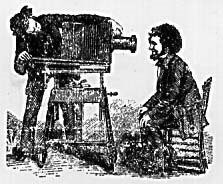Both texts relate the important contributions to the loosely defined field of "Cultural studies" by European activists, theorists, philosophers and such. These texts explains a lot of the conflicting arguments and statements between different people's theories as well as the shared derived traits people have "borrowed" or built upon. Gramsci's hegemony theory was an example of non-British influences to cultural studies and as an example where his ideas were extended beyond it's original boundaries to include other perspectives, this methodology is now incorporated into a wide variety of cultural subjects to reveal hegemonic tendencies(Introducing Cultural Studies p.51).
New Keyword: Intellectuals. I found the term “Intellectuals” difficult to grasp until I read this entry and read more about the psuedo-collective group of individuals. "...all work involves some degree of intellectual creativity, and thus "all men are intellectuals, one could say: but not all men have in society the function of intellectuals" and "They can be divided between the organic intellectuals who arise within every social class except the peasantry, and the traditional intellectuals, the priests, administrators, scholars, scientists, and so on, who claim a certain autonomy of the social field, and who thereby betray their lack of it." (New Keywords pp.189-190)
nuff said.
3. I found this essay and find it interesting from the historical point of view, It talks about the comparative features of the former British imperialism and the current American cultural hegemony. (http://www.foreignaffairs.org/20030901fareviewessay82512/niall-ferguson/hegemony-or-empire.html)

No comments:
Post a Comment